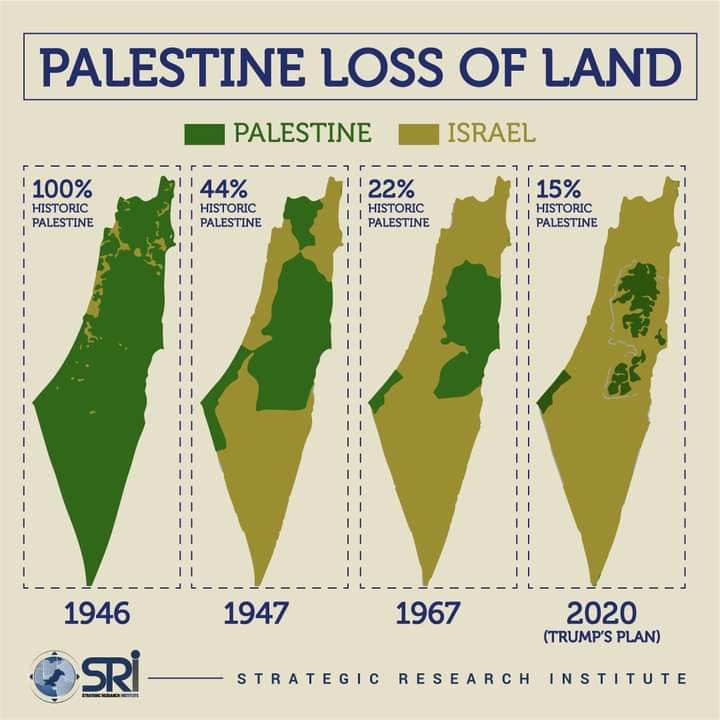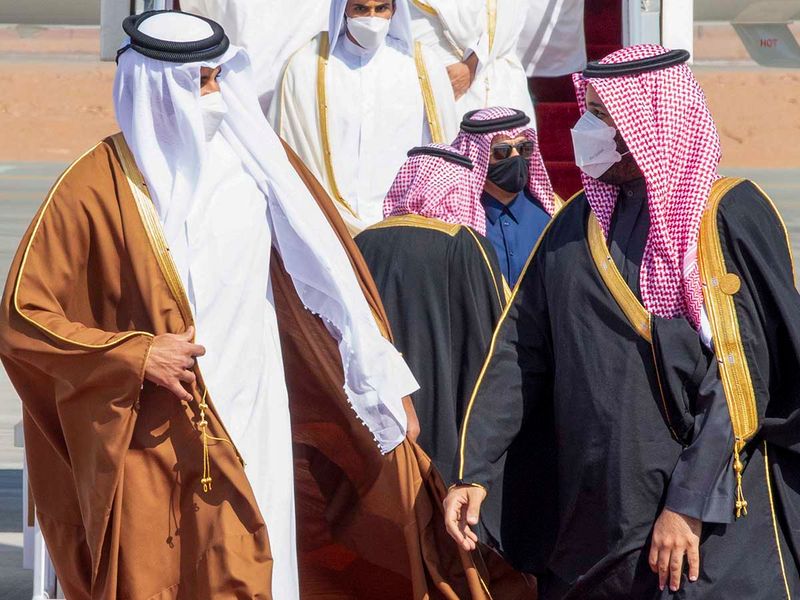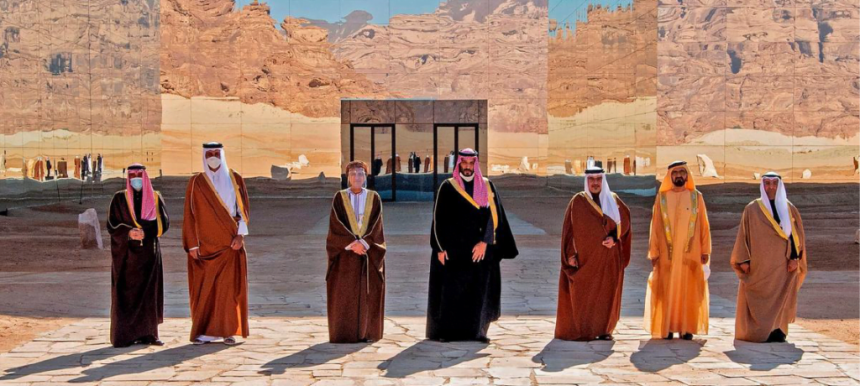The modern world knows the Middle East as a victim or home of violence, terrorism, uprisings, sectarian and inter-state conflicts despite the fact that it was once home to learning astronomy, mathematics, astrology, and philosophy. But the collapse of the Ottoman Empire and the role of the then French and British powers to influence the geography of the Middle East in such a way that it benefitted them through trade routes with little to no regard to the region, brought destruction to the region. It would be unfair to put all the blame on the colonial powers and portray the corrupt and self-interested leaders of the Middle East as innocent, who brought as much damage as the divide and rule colonial powers did. Countries such as Iraq, Jordan, Syria, Lebanon, and Turkey are still existing on the borders which French and British drew centuries ago. It is no secret that oil is one of the major causes of conflict in the Middle East, followed by land.
And in the author’s point of view, these conflicts are fueled by instigating sectarian differences amongst the masses. Consider the example of Saudi Arabia and Iran, where the Saudis are supporting the Sunni protester, Iran is supporting the Shi’ite government and vice versa, hence keeping the region preoccupied with wars to serve their national interests. This is where the major powers play their role; the US, Russia, Israel support respective groups that benefit their interests. And the role of US and Russian arms industry also plays a pivotal role in giving fuel to the fire.
Israel, once a foe to all the Arab states because of the UN’s partition plan adopted in UN resolution 181, which sought to divide Palestine into an Arab and Jewish state, is now focused on reconciliation with the Middle Eastern countries. The Arab states fought six wars with Israel over its unjust and illegal occupation of the Palestinian land. In between, Egypt and Jordan became the first two countries to recognize Israel in 1979 and 1994, respectively. This being said, the year 2020 was all about peace agreements in the Middle East, followed by the ministerial-level talks held in Warsaw, Poland where United States President Donald Trump was able to bring together Israel and several other Arab states which resulted in a peace accord known as Abraham Accord. However it was not the first peace accord being signed, the history remembers Yasser Arafat’s peace agreement where the PLO (Palestinian Liberation Organization) was not present. Since then, Israel has already occupied a major land area of Palestine, and Trump’s plan believes in legalizing it, as shown in the image below.

In August 2020, United Arab Emirates (UAE) recognized the Jewish state of Israel followed by Bahrain in September 2020. The so-called peace deal or the recognition of Israel comes bearing fruit for the Gulf state, right after UAE normalized its relations with Israel, it was able to acquire F-35 aircraft from the United States. Both Bahrain and UAE were called out by the Muslim countries especially Pakistan and Turkey. However, soon after that, Turkey too revived its relations with Israel by appointing an ambassador to Israel after two years. At the same time, Saudi Arabia’s silence over the pivotal issue gave a green signal to go ahead, considering the fact that Israel’s recognition helps in better relations with the US, which in turn helps in isolating or sidelining Iran.
Just this week, in the Gulf Cooperation Council’s yearly summit 2021, a breakthrough occurred when Saudi Arabia, Egypt, UAE, and Bahrain announced to restore full ties with Qatar that were halted in 2017 after disputes between Qatar and the Saudi-led bloc. The countries were successful in signing the “solidarity and stability” agreement. Whereas it all looks convenient and gives an impression that Muslim states are normalizing the relations and the “Ummah” is uniting, the other side of the story is the presence of Jared Kushner, Trump’s son in law and his top advisor, in the GCC summit. The question of why Kushner was present at the GCC summit and the possibility that it may have influenced the Saudi-led bloc to normalize relations with Qatar has a simple answer and that is to isolate Iran. When the Saudi-led bloc imposed a ban on Qatar, it moved towards Iran and Turkey and developed good diplomatic terms with them which is not beneficial for the US in the present situation. In order to fulfill its end goal, the US might have pushed the Saudis to end the ban on Qatar. Now dissecting it a little more and connecting the dots a little farther, it shows that despite Qatar’s disturbed relations with Israel it has the potential of playing an important role in dealing with the Gaza strip. The revived relations with the GCC will leave a little room of concern for Qatar’s influence over the Gaza strip. And may help the restoration of Qatar – Israel relations.

Analyzing the overall situation and looking at the facts, there is a possibility that the Middle East might be going towards peace and forming diplomatic relations amongst each other (obviously keeping Iran out of the equation for a while). But the point to ponder is that the peace in the Middle East is coming at the stake of the Palestinians. There is a peace paradox in the Middle East, where the Arab states are trying to achieve “peace” with the occupying power by overlooking the suffering, pain, and miseries of the Palestinians. At one time the same Arab states were fighting to bring peace and justice to the Palestinians and years later they are siding with an illegal state. The normalization deal also shows that the Palestinian issue is no longer of any importance for the Arab states as it does not affect their legitimacy in the Arab world. It won’t be a surprise if Saudi Arabia builds diplomatic ties with Israel, because a few months ago the Jewish sources confirmed the meeting of Saudi crown prince Muhammad Bin Salman with the Israeli Prime Minister.
The Arab world might have betrayed the Palestinians but Pakistan promises to continue to support the Palestinians cause and denounced any normalization of ties with Israel because it would completely nullify Pakistan’s stance against Indian unjust occupation of Kashmir. There are various voices within and outside Pakistan urging to recognize Israel, yet Pakistan has made it crystal clear that Pakistan will not normalize ties with Israel until the Israel-Palestine issue is resolved. The Israeli – Palestinian conflict cannot be resolved until the world is ready to accept Israel as an occupying state, and is ready to give the due rights to Palestinians.






